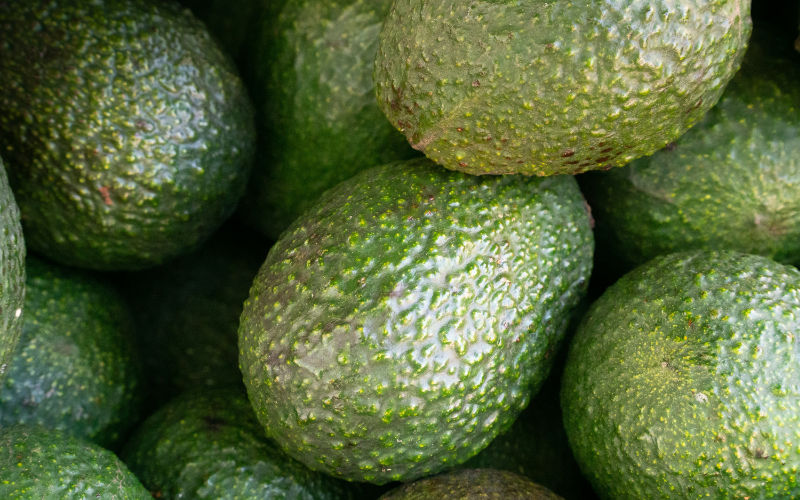Moroccan Avocado Industry Faces 25% Loss Amid Heatwave, Exports Remain Steady

In Morocco, the avocado production sector, like many other sectors, has been severely affected by the wave of extreme heat and the "Chergui" phenomenon that has hit the kingdom this summer.
The sector has suffered "severe damage", particularly in the province of Larache where "the high temperatures recorded in July and August have caused estimated losses of between 20 and 25% for avocado producers and harvests," according to industry professionals. "The recent heat wave did not affect all areas in the same way; the intensity and extent of the damage differ, which makes the forecasts less gloomy than what is circulating on some social platforms," explains the president of the Moroccan Avocado Association to Hespress. The official specifies that "claims of losses reaching half of production are totally unrealistic [...] they are solely aimed at justifying a future price increase by exploiting these exaggerations in speculative practices."
He adds that "this season’s production should be around 100,000 tons, compared to more than 130,000 tons last year," indicating that "the entry into production of new farms in recent years will strengthen the sector’s export capacity." The official also points out that "some producers have chosen to delay the harvest in anticipation of an improvement in prices, while others will move directly to marketing as of the official launch of the season next November." The professional also warns against "attempts by some speculators to artificially manipulate the market in order to drive up prices." As for exports, "their expected volume should remain at a level close to that of the previous season despite the challenges," he says, calling for the implementation of public subsidies for small producers. "Support for this category is essential to ensure the continuity of production and preserve the competitiveness of the sector, especially on the international market."
In the same vein, a professional representing an avocado industry company in Larache, said that "the impact of the chergui and the high temperatures in July was evident, especially as it coincided with the avocado tree maturation period." According to him, "the 2025/2026 campaign should record a decline of around 30% due to the heat and difficult climatic conditions." To avoid the worst, he calls on the competent authorities to "carry out a field census and conduct visits to farms in the northwest of the Kingdom to assess the extent of the damage and measure the losses." And to warn: "The local market could also suffer from a drop in production, given the commitments related to exports, which could lead to a rise in the final price for consumers."
For his part, an import-export expert argues that "the key is to put in place a real mechanism to protect exporters from the effects of climate change and fluctuations in international markets." According to him, "the avocado sector alone is a major source of foreign exchange for the Moroccan economy. But the considerable losses recorded this season, due to excessive temperatures, will weigh heavily on export performance and the jobs that depend on it." For these reasons, he calls on the Ministries of Agriculture and Foreign Trade to implement "a special program to support exports in the face of climate change, as this is now an absolute priority." Last year, Morocco produced nearly 120,000 tons of avocados, of which 105,000 tons were exported. A record in the history of the sector.
Related Articles
-

Morocco’s Finance Ministry Invests 2.6 Million Dirhams in Amazigh and English Language Training
25 August 2025
-

Berlin Protest Ignites Global Outcry: LGBTQ+ Activist’s Arrest Sparks Freedom of Speech Debate in Morocco
25 August 2025
-

Morocco’s Customs Maze: 5 Key Rules for Travelers Bringing Goods
25 August 2025
-

Ambitious 104km Highway Project Accelerates Eastern Morocco’s Economic Transformation
24 August 2025
-

Morocco Flexes Military Muscle: Successfully Tests Israeli Precision Missile in Eastern Region
24 August 2025